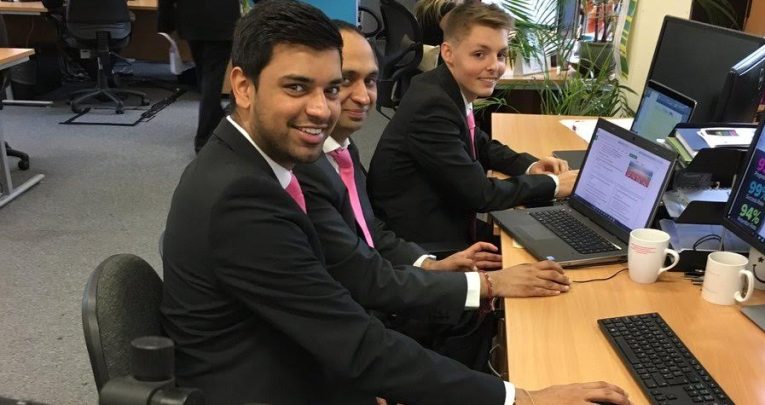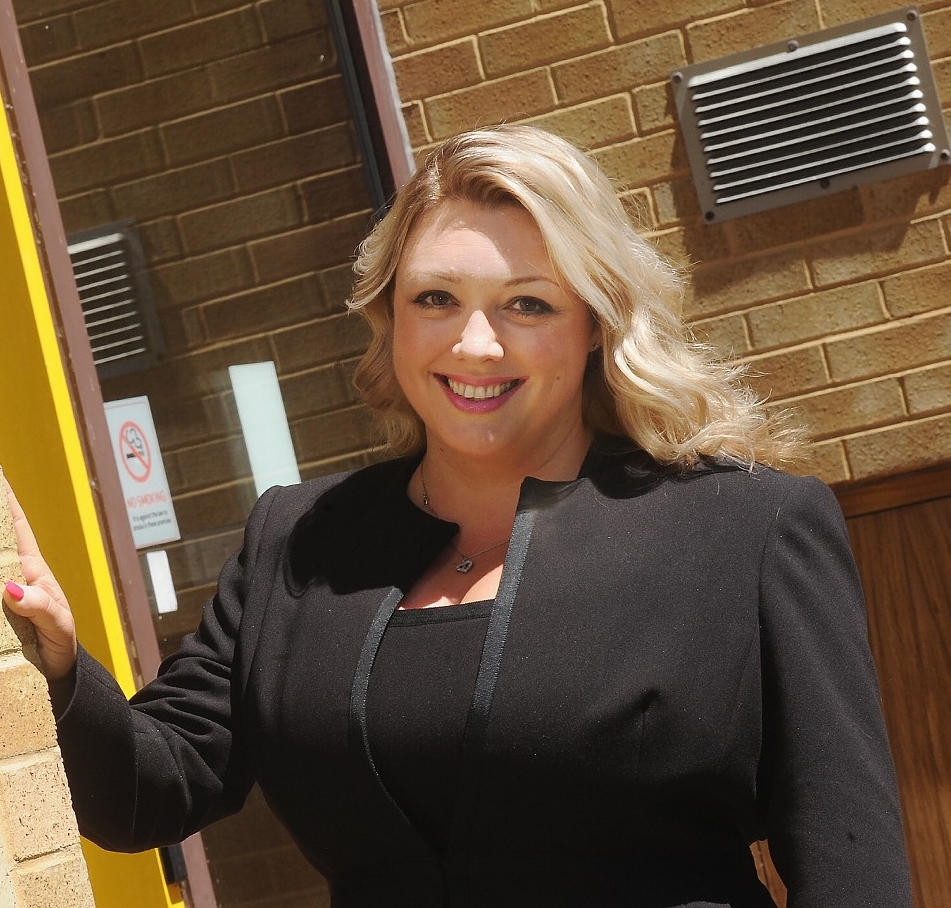“Employers Have A Duty To Support The Younger Generation”

As this year's Work Experience Week draws to a close, Fleur Sexton of learning interventions provider PET-Xi describes why she's long been a supporter of school students being able to learn on the job…

- by Fleur Sexton

I’m a huge believer in the benefits of work experience, and in connecting schools, students and employers so that it’s win-win all round.
Students get the chance to try out an area of employment they are interested in pursuing and gain skills and experience – including some of those crucial ‘soft’ skills necessary to make someone ‘employable’, such as communication, team-working and commercial awareness. Schools in turn are able to offer their students an experience that can’t be replicated in the classroom – and by working with employers, can establish exactly which skill sets are needed in today’s fast-moving world.
Finally, employers have an opportunity to show their commitment to the next generation of workers. By helping to prepare school leavers for the world of work, they are effectively working improve their ability to recruit locally in the future.
Seemingly small things
First-time employees need work-ready skills from day one, but even seemingly small things such as email etiquette and how to answer a phone need to be learned somewhere. Work experience can help provide this.
If I had to choose between two otherwise level-pegging prospective employees, I’d take the person with the work experience – because that tells me that they know what it’s like to be in the workplace, and that they have previously shown some initiative by arranging to spend some time there.
When the British Chamber of Commerce (BCC) surveyed its members last year, it found that 79% of employers ranked work experience as the number one activity necessary to equip young people with workplace skills. According to the BCC’s Director General, John Longworth, ‘Business and school leaders are clear – we won’t bridge the gap between the world of education and the world of work unless young people spend time in workplaces while still at school.”
We’re committed to offering work experience opportunities at PET-Xi. This summer we ran the work experience scheme for Exhall Grange Special School in Coventry and welcomed one of their students, Joshua Fleming, into our own offices, where he worked in our IT department.
We also placed and assisted a further 50 Exhall Grange students from Years 11, 12 and 13 in a variety of work placements around Coventry, where they variously worked in schools, shops and catering businesses, among many other destinations.
Presentable and work-ready
The students at Exhall Grange have to manage a wide range of additional challenges, ranging from visual impairment and physical disabilities, to complex medical needs and various communication difficulties. It shouldn’t be the case, but they will have to face additional barriers to employment. According to a recent survey carried out by the Recruitment and Employment Confederation revealed that 95% of recruiters say that companies are ‘fearful’ or ‘unsure’ about hiring disabled candidates.
I think it’s really important that every child, able-bodied or not, should have the opportunity to gain work experience and benefit from the impact it can have in helping to reduce youth unemployment.
I’m therefore delighted to be currently working with The Careers & Enterprise Company in Coventry and Warwickshire and sharing my contacts and advice with local schools. All employers have a duty to support the younger generation – to help them to understand what it is to work, and to instil in them the drive and ambition to be the best that they can be.
To be employable’, a young person ultimately needs to possess a number of skills and attributes, including punctuality, the ability be open and friendly and a willingness to ask questions – all of which are essential for getting on in life and being prepared to take on a job.
By helping young people to sharpen their approach and ensure they are both presentable and work-ready, we can all do something very powerful. It’s incumbent upon educators, schools and businesses to work together, to support students and make them aware of the different opportunities and pathways open to them.
Fleur Sexton is joint managing director of PET-Xi; for more information, visit www.pet-xi.co.uk or follow @petxitraining
How was it for you?
Four past and current PET-Xi work placement participants recall what they took away from the experience…
Elliott Bennett About to embark on an 18-month apprenticeship at PET-Xi, having recently completed a course of work experience During my time at PET-Xi I’ve helped its business administrator with various tasks around the office, helped out with some of the maths learning work they do, and gone through the software manuals they have, formatting them so that they’re easier to read. It’s been quite varied.
Before starting here I was at City College Coventry, studying a diploma in electrical engineering, but I decided to move into more of a computing/IT route. So far I’ve really enjoyed it. Working with experts in different subject areas has been really helpful, but I’d say it’s my confidence that improved the most since being here.
Prior to doing this I’d have described myself as quite shy and nervous around people, but I feel much more confident now. I can talk to people I don’t know in a crowd now, which I struggled to do before.
Hannah Davies Completed work experience with PET-Xi in 2015, currently studying French and Spanish at university
My placement was for two weeks in the summer after my first year of sixth form. I helped to make a new learning intervention programme for Year 7s modelled it on a game, and a similar programme for pupils struggling to concentrate in lessons.
The second was a kind of ‘sentence builder’ activity, with colour-coded similes and metaphors. Before starting the placement I’d been helping to tutor a child in Year 8 at school who needed assistance with their spelling and vocabulary, so it felt good to be able to apply my existing skills in a professional setting.
I like to think I made the most of my time working at PET-Xi. It made me think about the skills I’d need to teach in a school abroad, which is what I’m hoping to do for my upcoming university placement. Perhaps I’ll get to put those same skills to use again, making similar activities but in different languages.
James Moffitt Completed a work experience placement at PET-Xi in September this year, and is currently in the second year of studying for his A levels
My placement was spent shadowing PET-Xi’s accountant for a week and helping to update the management records they had to generate each month.
I wasn’t really sure what I was getting myself into, at first. I thought I’d just be sat in front of a spreadsheet and a bunch of numbers, but it was more about going out and retrieving information from different departments around the company. The staff very friendly, so it was all fine – but when I first started, the wandering around did seem a bit weird.
I initially wasn’t quite sure about going to studying accountancy, but the experience gave me a good understanding of what accountants do, the role they play and their place in the industry. The accountant I was with talked to me about how I could get into certain fields and the best routes to take, though I’m still a little unsure at this point on whether to go to university or do an apprenticeship.
Gopesh Sharma Completed a work experience with PET-Xi in 2006, before going on to found his own IT consultancy business; he currently works as a customer services supervisor for an energy company
My placement saw me working in a technical tole, processing audio files for some of the language packages that PET-Xi had back then. At the time, I had no goals, no ambitions. I was pretty bored with school, and quite honestly, I felt like a pretty thick kid.
Fleur visited the school where I was studying for a B-Tech to teach an entrepreneurship course, and it was through that that I got to secure a work placement at PET-Xi. Computers were something I’d been doing as a hobby at home, but not in any practical way. It was only when I started the placement that I realised these skills I had actually did have a practical use – and that maybe I had some talents that could be applicable to academia after all.
The experience really broadened the way I thought. I came to see that I was quite methodical and logical in the way I thought and spoke to people, and that I had a talent of sorts for explaining things to people. That inspired me to go on to study law, and I eventually ended up getting a law degree. The main thing I took away from the experience was the realisation that everyone has something special about them that they can do. It opened my eyes to a whole new world.







